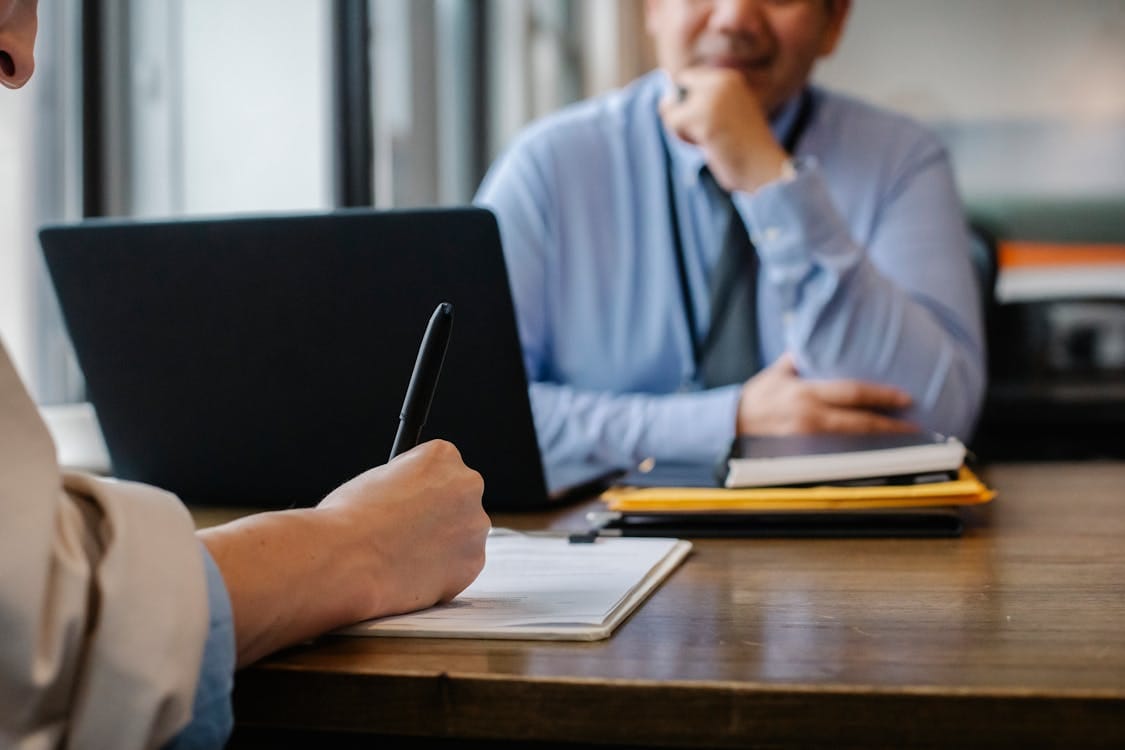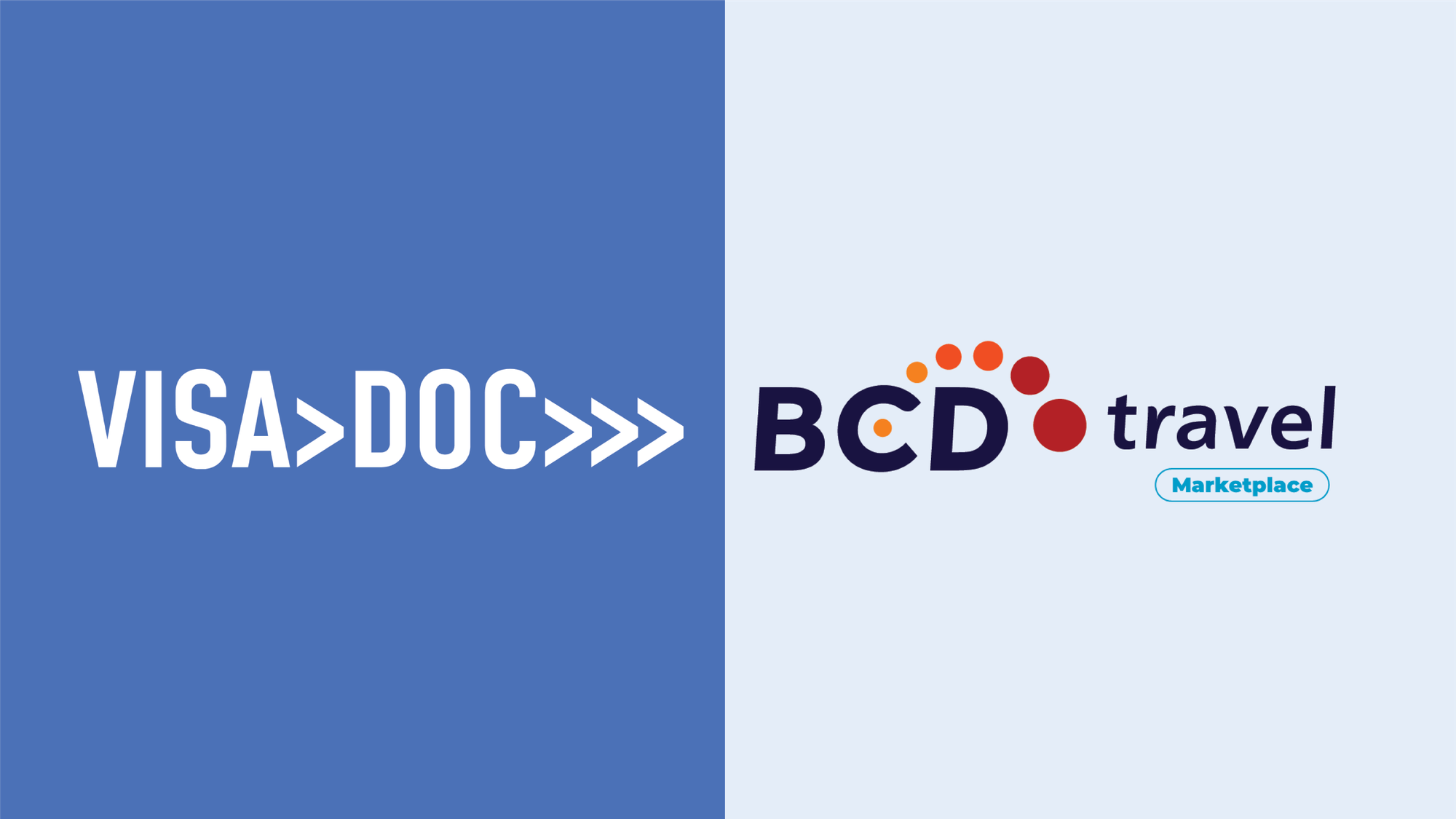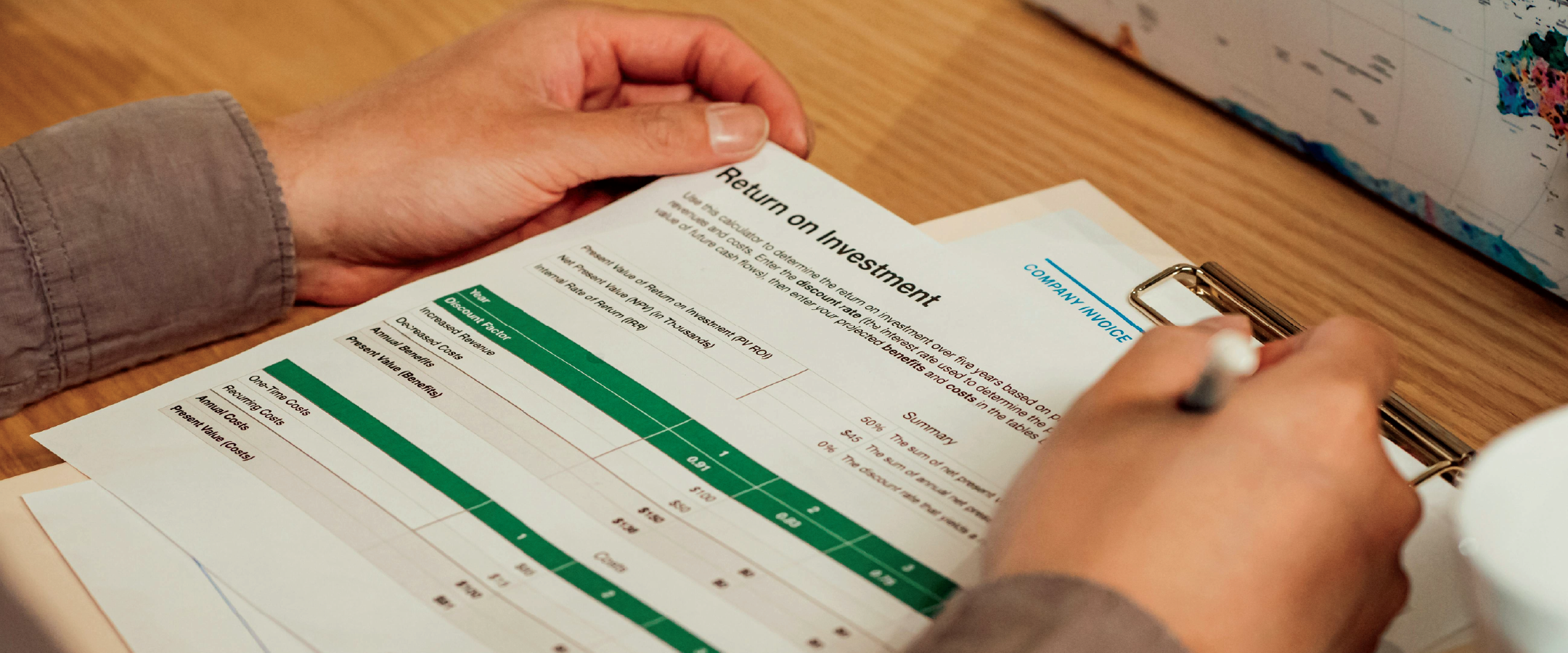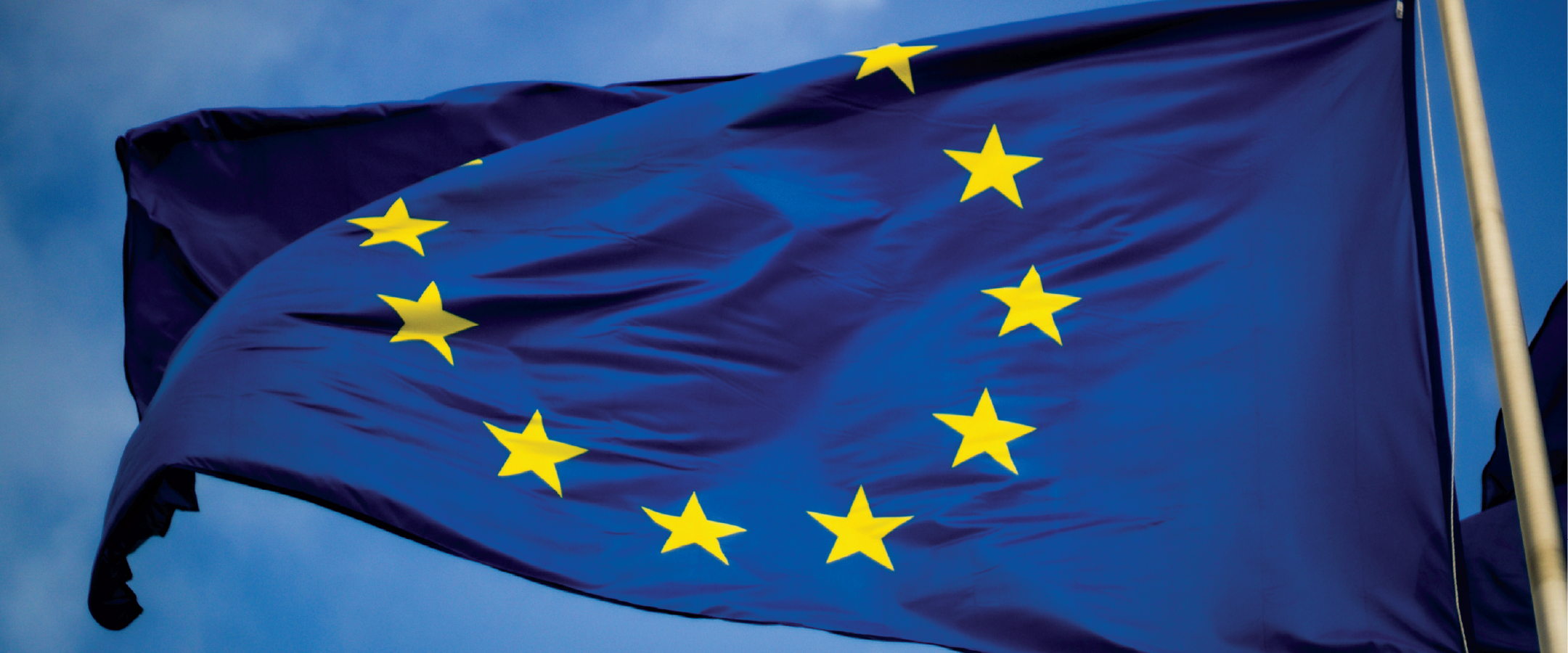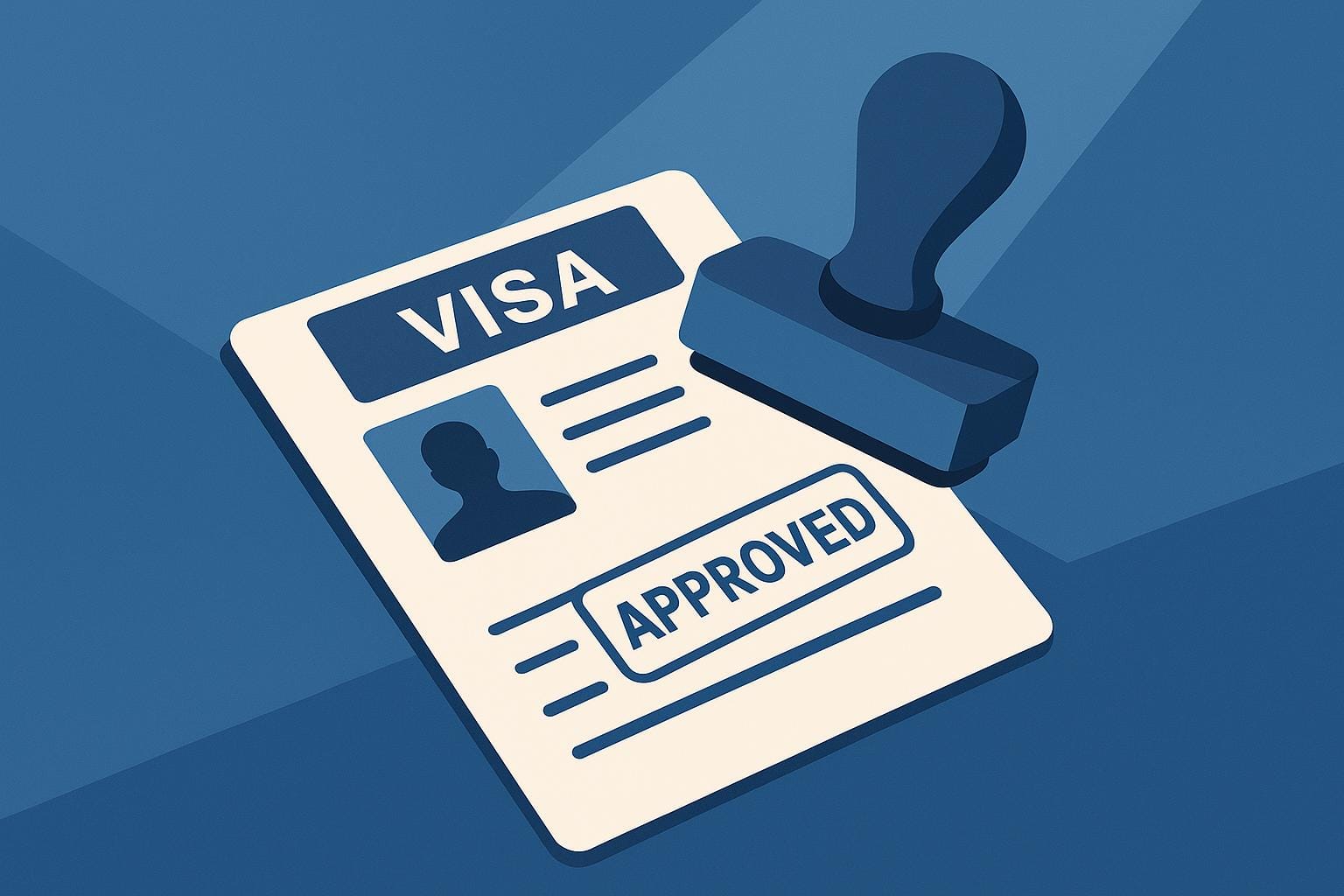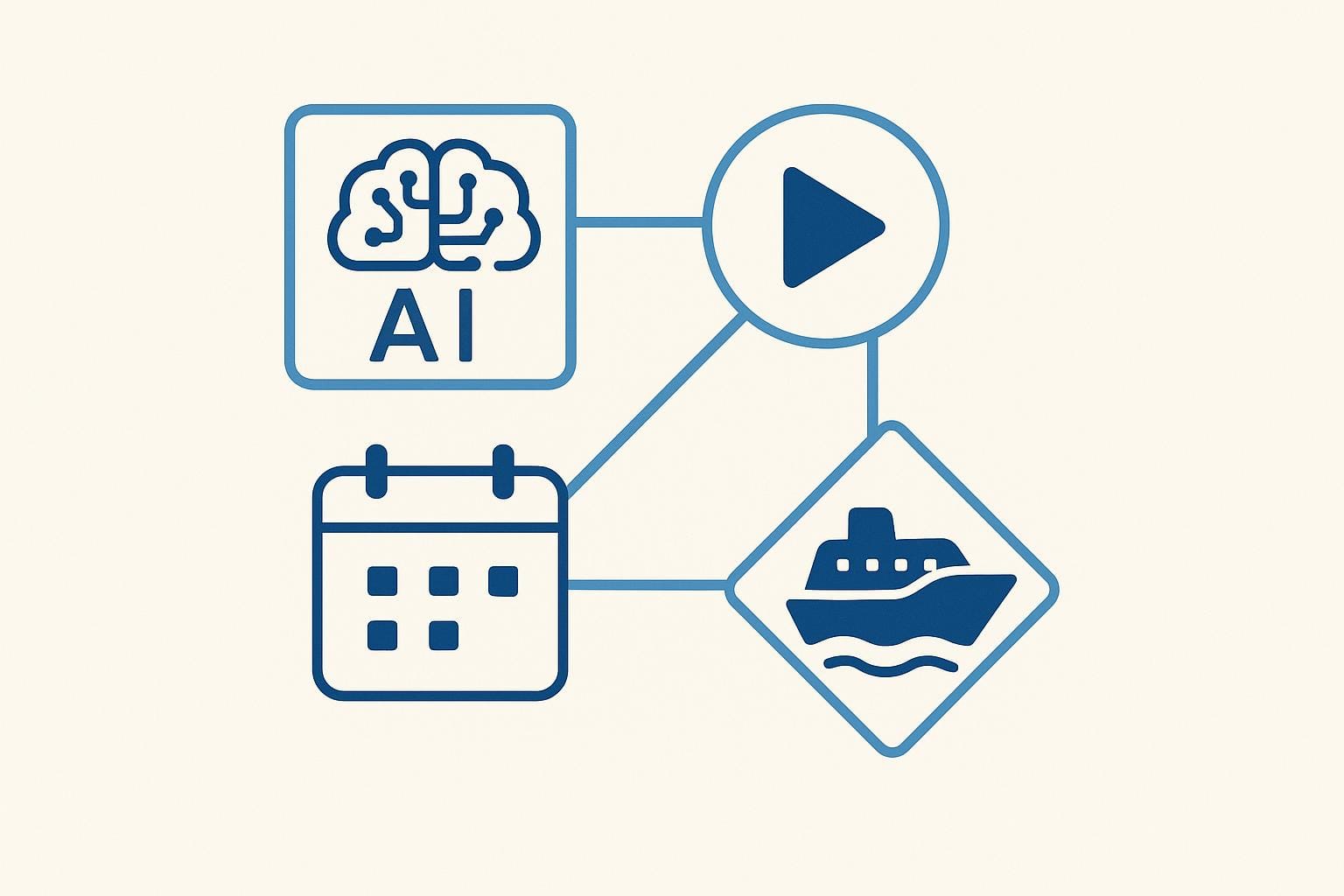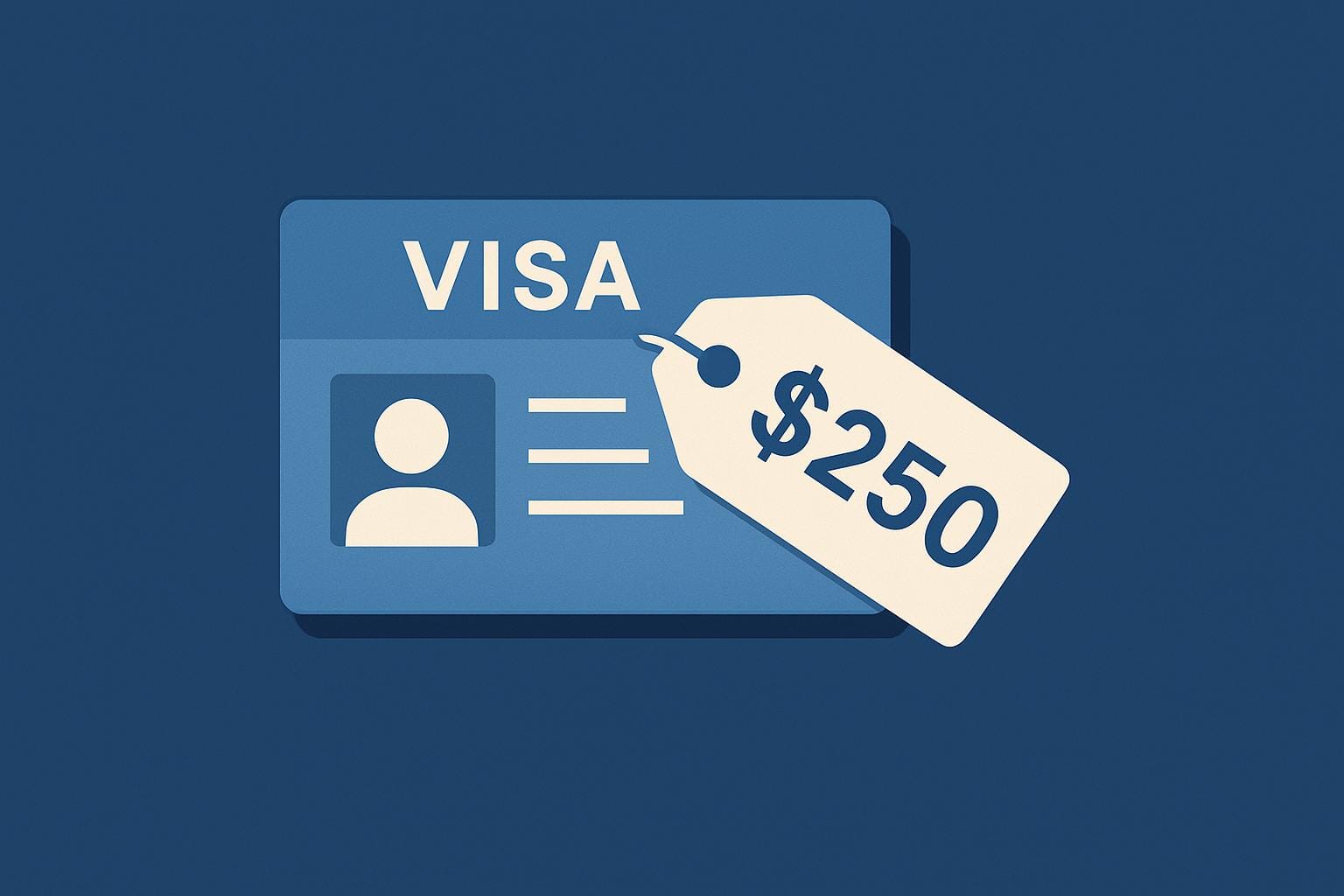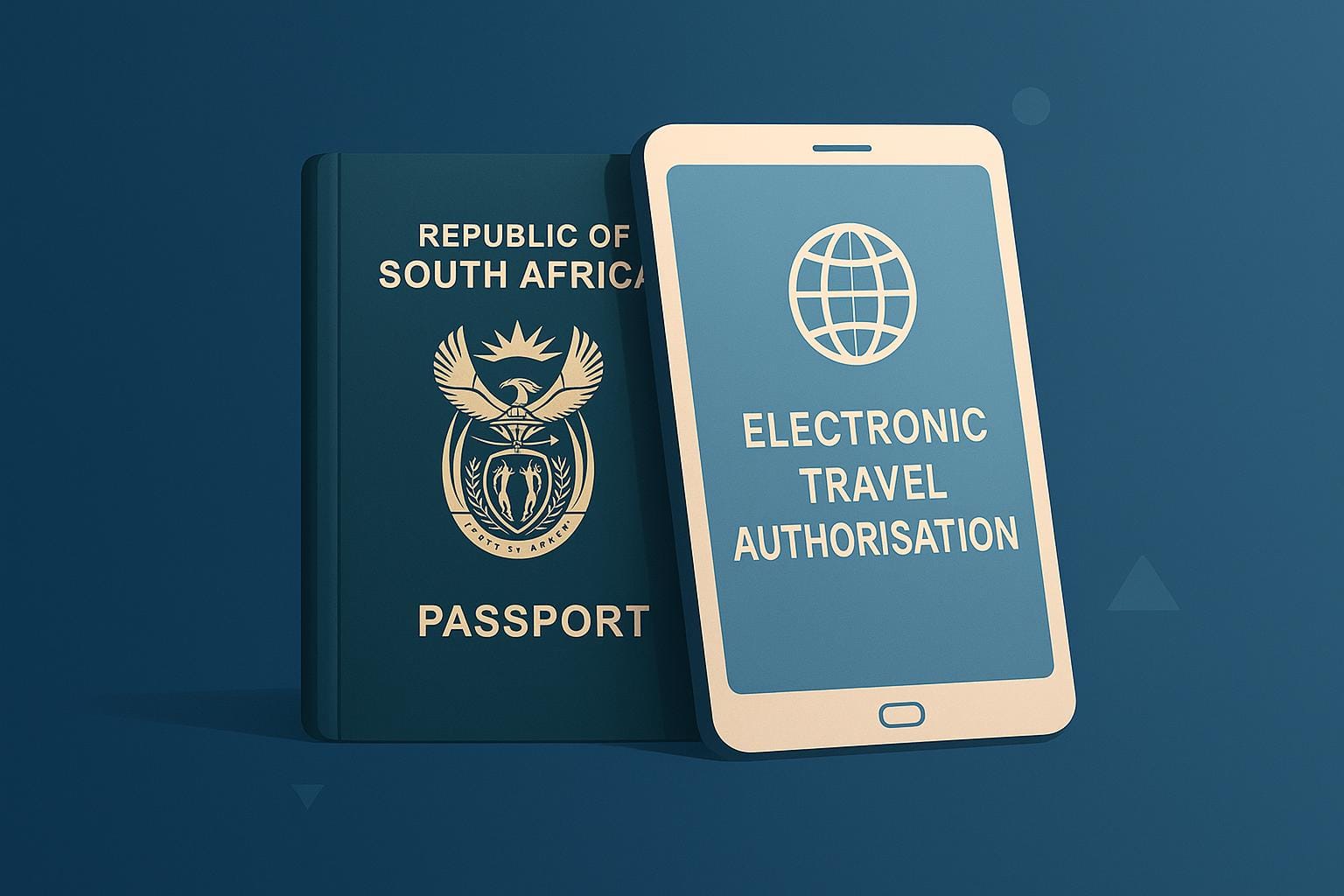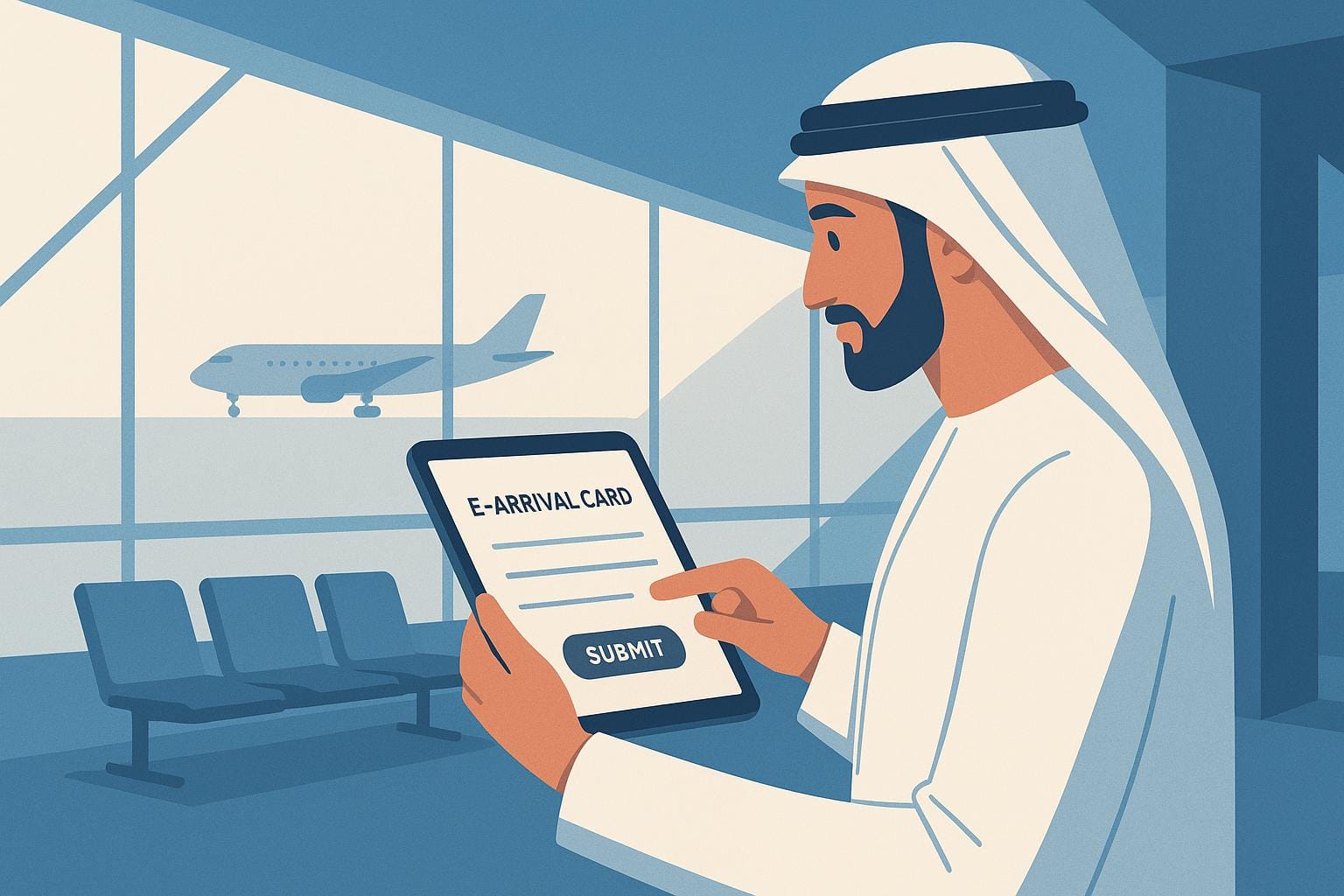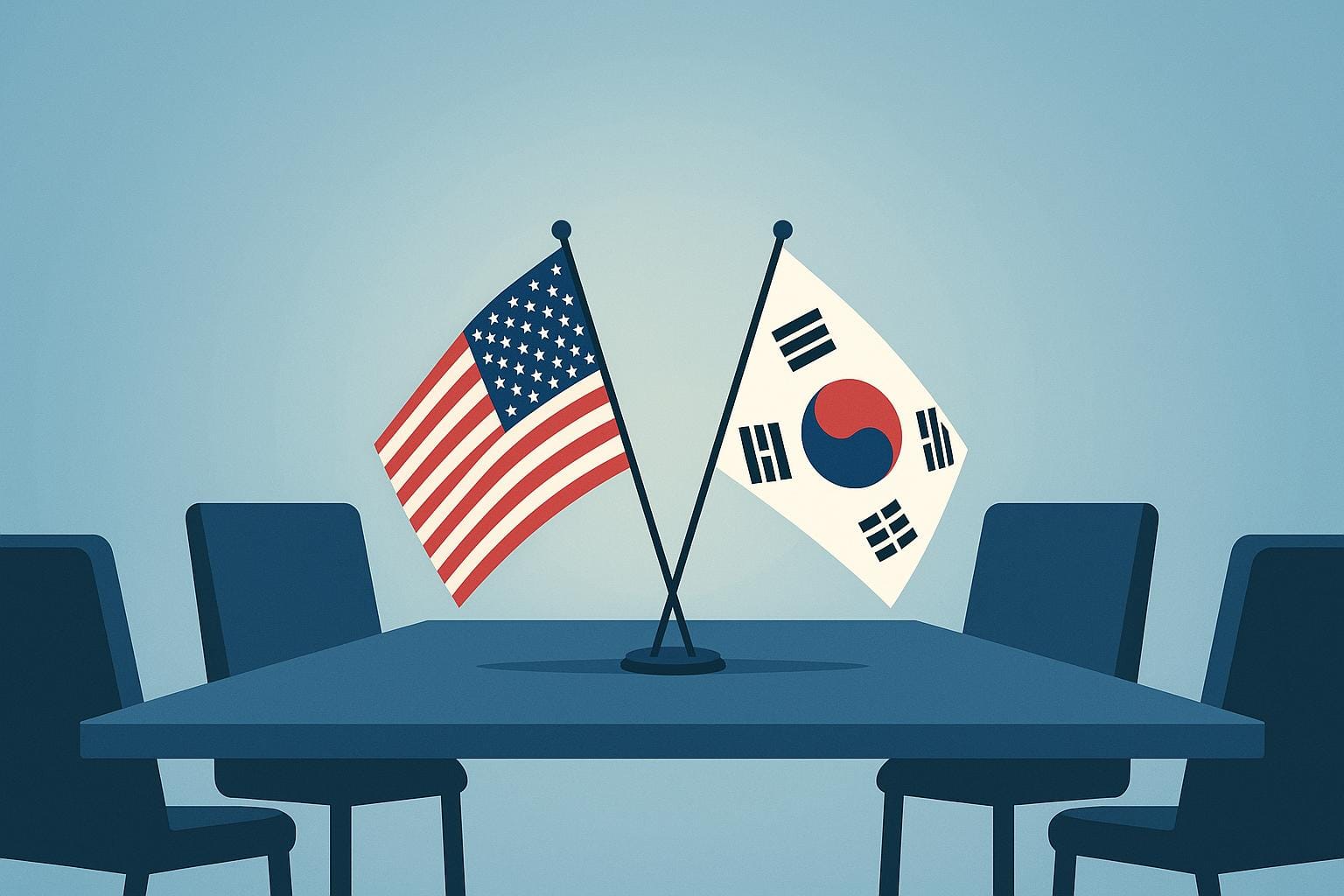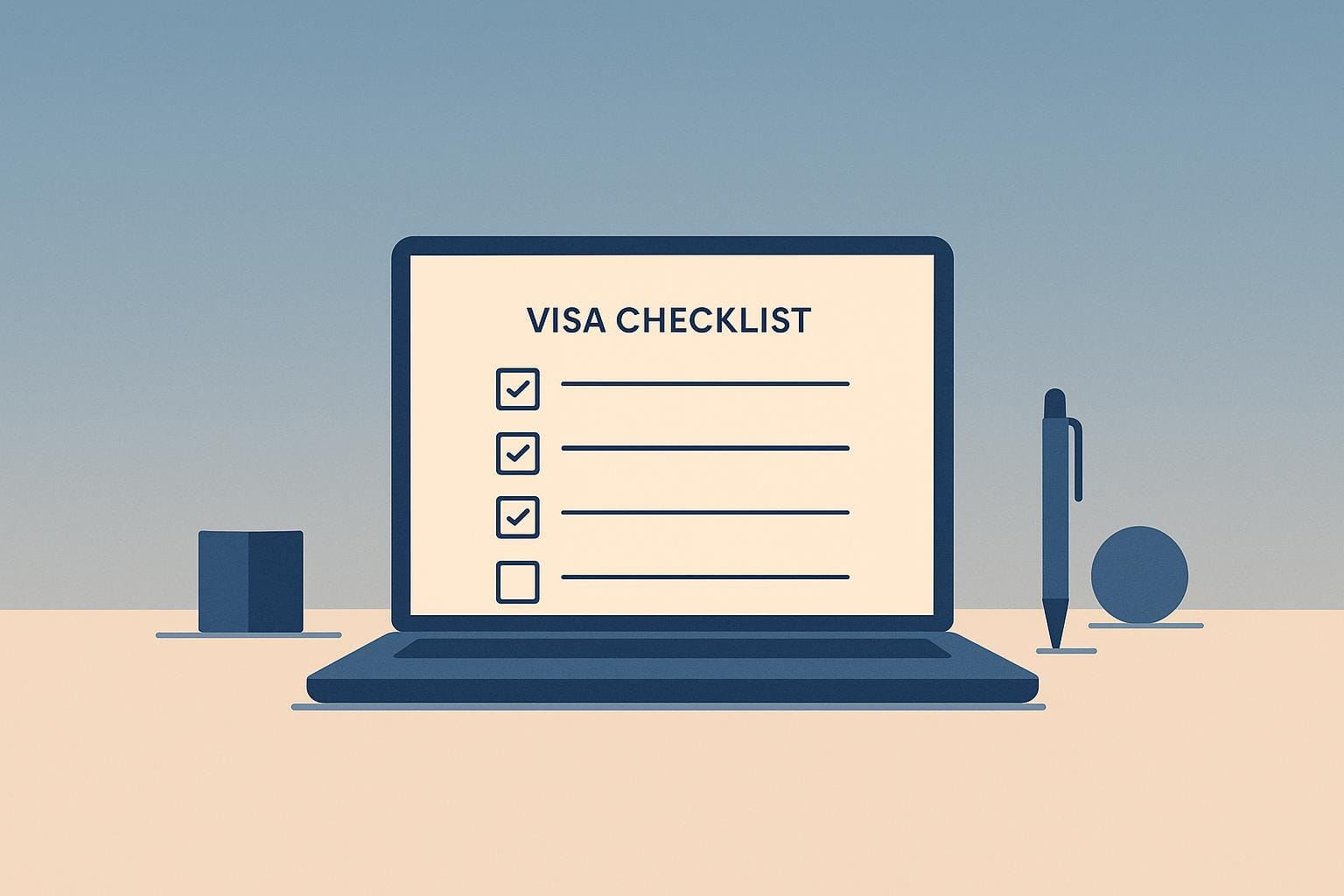Visa interviews are short but crucial. Employees must be prepared to clearly explain their travel purpose, job role, and ties to their home country. HR teams play a key role in ensuring success by helping employees:
- Review DS-160 forms: Make sure all details are accurate and complete.
- Organise documents: Prepare passports, employment letters, visa petitions, and supporting paperwork.
- Practise interview answers: Use mock interviews to build confidence and provide concise, clear responses.
Visa officers focus on three key areas: application accuracy, employment details, and travel intentions. Tools like VisaDoc can streamline preparation by automating document checks and organising materials. Proper preparation and professionalism during the interview can significantly improve approval chances.
What Visa Officers Look For
Knowing what visa officers evaluate can help HR teams better support applicants. With only about two minutes per case, officers must quickly decide on visa eligibility.
Main Interview Goals
Visa officers aim to confirm both the applicant's credibility and the legitimacy of their travel plans. They focus on three main areas:
Accuracy of Application
The DS-160 form provides the core details of the case, guiding the officer’s quick assessment.
Employment Details
Officers examine aspects such as:
- Current job role and responsibilities
- Employer details and business operations
- How the job relates to the purpose of travel
- Length of employment and salary
Travel Intentions
Officers check if the stated business purpose fits the visa requirements by reviewing:
| Aspect | What They Check |
|---|---|
| Trip Details | Duration, itinerary, and business contacts |
| Home Ties | Property ownership and family commitments |
| Financial Stability | Funds to cover travel expenses |
| Previous Travel | Compliance with past visa conditions |
Understanding these focus areas can help clarify the interview process and address common misconceptions.
Facts vs Myths
There are many myths about visa interviews. Here’s what actually happens, based on consular practices:
Interview Length
Each interview lasts about two minutes, so efficiency is key.
Answering Questions
Officers expect short, direct answers that are honest and professionally communicated.
Document Use
Officers rely on:
- The DS-160 form
- Employer-provided supporting documents
- Evidence of ties to the home country
Visa officers are trained to quickly identify inconsistencies by comparing an applicant's statements, documents, and work history. The goal is to help employees present their case clearly and truthfully during the short interview.
Step-by-Step Interview Preparation
Thorough preparation is key to acing a visa interview.
Required Documents List
Having all necessary documents ready shows you're prepared and organised:
| Document | Requirement/Notes |
|---|---|
| Passport | Must be valid for at least six months |
| DS-160 Confirmation & Visa Appointment Pages | Contains key application details |
| Employment Verification | Includes a current employment letter or three recent payslips |
| Passport Photographs | Two recent, passport-sized photos |
| Visa Petition Document | A copy of the current petition for H‑1B, L‑1, O‑1, or P visas |
| Additional Documentation | Original marriage/birth certificates for dependents; corporate documents for E visas |
Once your documents are ready, practice interview scenarios to build confidence and improve clarity.
Mock Interview Guide
After gathering the necessary paperwork, mock interviews can help refine answers and reduce anxiety:
-
Know Your Documents
Be prepared to clearly explain details from your DS-160 form, especially your job role and employment specifics. -
Practice Key Answers
Work on concise responses about your job, company operations, reason for travel, and any prior trips to the US. -
Feedback and Improvement
After each practice session, review feedback on how clear and professional your answers are. Remind yourself that it's fine to ask for clarification if you don’t understand a question.
Professional Appearance Tips
First impressions play a significant role in visa interviews:
Dress Code
- Wear neat, conservative business attire
- Keep jewellery minimal
Professional Conduct
- Arrive 15 minutes early
- Listen carefully to each question
- Provide short, clear answers
- Politely ask for clarification if needed
Key Questions and Best Answers
Once you've organised your documents and practised potential scenarios, shift your focus to delivering clear and effective answers during the interview.
Standard Interview Questions
Visa officers usually concentrate on three main areas: your personal background, employment details, and the purpose of your travel. Here's a breakdown of common question categories:
Personal and Travel Questions
| Question Category | Common Questions | Key Focus Areas |
|---|---|---|
| Background | • Educational history • Previous travel experience • Family ties in home country |
Demonstrating credibility and personal connections |
| Travel Purpose | • Reason for US travel • Length of intended stay • Plans after visa expiry |
Ensuring the visit is temporary |
| Employment | • Current role and responsibilities • Details of new position • Salary arrangements |
Confirming job authenticity |
These categories can help you tailor your preparation and refine your answers. Use the strategies below to make a strong impression.
How to Answer Well
When addressing visa officer questions, keep these tips in mind:
-
Be Clear and Direct
Avoid vague responses. For example, instead of saying, "I'm a software engineer", try: "I'm a senior software engineer with eight years of experience managing cloud infrastructure projects." -
Highlight Ties to Your Home Country
Visa officers want to see that your visit is temporary and that you plan to return home."The officer's main goal is to ensure you are planning only a temporary visit to the United States and that you intend to return to your home country after your visit." - Boundless
Mention commitments like family responsibilities, property ownership, or ongoing business activities to emphasise your intention to return. -
Demonstrate Knowledge About Your Employer
Speak confidently about your company, your role, and the goals of your department or projects. This shows your employment is genuine. -
Handle Difficult Questions with Confidence
If a question is unclear, don't hesitate to ask for clarification."Remember: It is OK for your employee to ask questions of the visa officer to clarify if they do not understand a question. It is better to get clarification than to hope they are answering correctly." - Quarles Law Firm
Politely requesting the officer to rephrase a question shows honesty and self-assurance.
Using VisaDoc for Interview Prep
VisaDoc provides a set of tools designed to simplify and improve the visa interview preparation process for your employees. These tools ensure all documentation is complete and compliant with current requirements.
Visa Requirements Database
VisaDoc's database helps ensure accuracy and efficiency in document preparation. Here's a breakdown of its features:
| Document Category | System Features | Benefits |
|---|---|---|
| Core Requirements | • Automated validation of DS-160 forms • Passport validity checker • Photo compliance tool |
Reduces common submission errors |
| Supporting Documents | • Dynamic checklist generation • Digital verification system |
Ensures all necessary documents are included |
This database works alongside other preparation steps to make the process smoother and more reliable.
Document Management Tools
VisaDoc also provides tools to organise and verify application materials effectively:
- Smart Document Generation: Automatically creates visa-specific forms with pre-filled fields using existing HR data.
- Verification Engine: Checks documents for correct formatting and completeness.
- Digital Storage: Securely stores all required documents, accessible only to authorised users.
HR System Integration
VisaDoc connects seamlessly with your existing HR systems, offering additional functionality:
- Data Synchronisation: Automatically imports employee data, reducing errors and ensuring consistency.
- Workflow Automation: Develops preparation schedules based on interview dates and processing requirements, with automated reminders for pending tasks.
- Compliance Monitoring: Tracks visa application statuses and flags any issues to ensure all documentation aligns with current regulations.
These features make VisaDoc a powerful tool for streamlining and improving the visa interview preparation process.
Interview Day Instructions
Pre-Interview Checklist
Consular officers generally spend about 2 minutes per case. To make the most of this limited time, thorough preparation is key.
| Timing | Action Items | Purpose |
|---|---|---|
| Night Before | • Arrange documents in order • Review DS-160 and I-129 forms • Choose professional attire • Set multiple alarms |
Ensures you're ready in the morning |
| Morning Of | • Double-check all documents • Arrive 30 minutes early • Bring only essential items • Keep passport and appointment letter handy |
Avoids unnecessary delays |
| Pre-Interview | • Refresh your knowledge of your current role • Practise explaining your role • Remove any restricted items |
Helps you stay focused and clear |
These steps help you feel prepared and confident when facing the interview.
Interview Room Behaviour
After all your preparation, how you conduct yourself during the interview matters just as much. Here are some key tips to follow:
- Maintain eye contact and sit up straight
- Speak clearly and confidently in English
- Give honest, concise answers
- Stay calm, even if your application is denied
If your application is denied, politely request a written explanation and a list of documents that might address the refusal.
Consular officers make decisions quickly, so professionalism is crucial. Stick to the purpose of your visit and avoid discussing broader immigration topics.
Conclusion
Securing a visa relies heavily on thorough preparation and a professional presentation. Employees who can clearly explain their roles and responsibilities are much more likely to receive approval.
A well-organised approach is crucial: ensure all forms, particularly the DS-160, and supporting documents are accurate, neatly arranged, and easy to access. Communicate clearly, provide concise answers, and maintain a professional attitude throughout the process.
These steps create a solid foundation for a smooth interview experience. Tools like VisaDoc simplify this preparation by offering real-time access to visa requirements, automating document organisation, centralising storage, and integrating with HR systems.
It's worth noting that consular officers often make decisions quickly, sometimes in under two minutes. By following these preparation tips and using VisaDoc’s tools, employees can approach their visa interviews with confidence, improving their chances of success.
Encourage employees to consult with HR and review all necessary documentation well ahead of time to make the most of these strategies.



